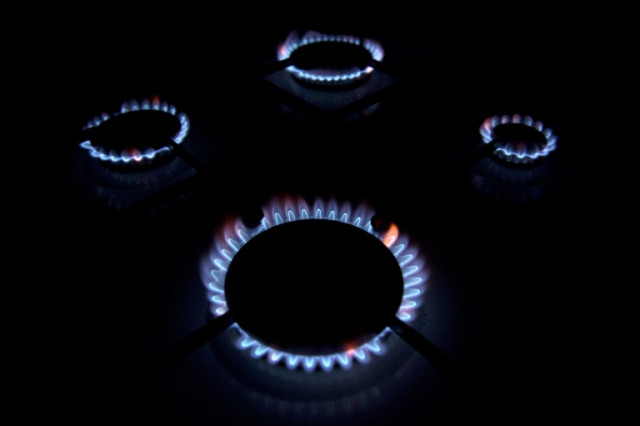The new energy bill which is being discussed by French MPs in parliament on Tuesday, aims to set the country's course in terms of its transition to more sustainable energy practices.
Included in the plan is a change in the way electricity and gas tariffs are calculated in an attempt to stabilise bills for consumers.
Here's a look at what it means for you.
READ ALSO:
 EDF's coal-fired powerplant in Cordemais, western France. Photo: AFP
EDF's coal-fired powerplant in Cordemais, western France. Photo: AFP
Electricity
The French government wants to stabilise the cost of electricity and as part of the new bill, there would be a “change to the method used to calculate electricity tariffs”, the French Minister for the Environment told the French press.
“I want to give the French a form of price stability related to the stability of the cost of electricity production by nuclear power plants,” he said, adding that 70 percent of France's electricity is produced by nuclear power stations.
This means that the cost of electricity should be “fairly stable” and “fixed by law”, said the minister, explaining that if French power giant EDF and its competitors have access to fixed-cost nuclear electricity the number of price hikes should be limited.
No doubt the changes will be met enthusiastically by the general public, with the cost of electricity recently increasing in France, with a price hike of 5.9 percent in June and further hike expected in August.
Today, the regulated electricity tariffs, applied by EDF to around 25 million households, are set by the French Energy Regulatory Commission, according to a complex calculations, which take into account the evolution of the wholesale market price.
The aim is to stabilise prices by 2020.
 Photo: AFP
Photo: AFP
Gas
The bill states that regulation of gas tariffs will be gradually phased out over the next few years up to 2023 in a bid to “protect consumers”.
Currently the tariffs are applied to 4.3 million households in France (40 percent) by French energy company Engie however in 2017 France's Administrative Supreme Court (Conseil d'État) judged this system was judged to be contrary to EU law.
The idea is that scrapping the tariffs lays the foundations for a fully competitive retail market for the supply of natural gas in France.
It is uncertain whether the end of regulated tariffs will lead to an increase or decrease in the cost of gas for the French consumer although it is feared by some consumer groups that the price will go up.
On a positive note for consumers, natural gas prices are presently lower in countries without regulated tariffs, including Germany, the United Kingdom, and Italy.
Other reforms
Stabilising the price of electricity and gas for consumers are just two of the goals of the new energy bill.
Another is achieving carbon neutrality by 2050, with the government aiming to reduce France's consumption of fossil fuels by 40 percent as soon as 2030.
On top of that the government aims to close 14 nuclear out of the country's 58 power plants by 2035, as well as close the last coal plants by 2022.
France relies on nuclear power for nearly 72 percent of its electricity needs, though the government wants to reduce this to 50 percent by 2030 or 2035 by developing more renewable energy sources.
French President Emmanuel Macron has said France would aim to triple its wind power electricity output by 2030, and increase solar energy output fivefold in that period.
He also said that he would ask French electricity giant EDF to study the feasibility of more next-generation EPR nuclear reactors, but will wait until 2021 before deciding whether to proceed with construction.
In November Macron established a High Council for Climate, composed of 13 scientists, economists and other experts, the council is responsible for evaluating the energy policies and measures implemented in France and issuing recommendations.
The council's first report on French climate action is set to be released on June 25th and the government will have six months to respond.



 Please whitelist us to continue reading.
Please whitelist us to continue reading.
Member comments